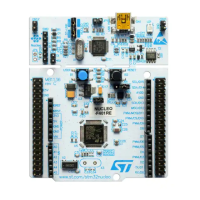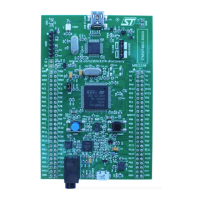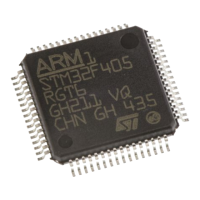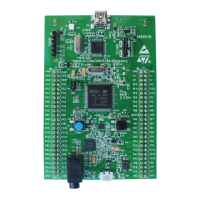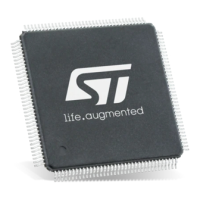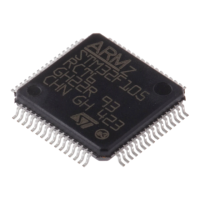RM0402 Rev 6 997/1163
RM0402 USB on-the-go full-speed (OTG_FS)
1122
29.15.1 OTG control and status register (OTG_GOTGCTL)
Address offset: 0x000
Reset value: 0x0001 0000
The OTG_GOTGCTL register controls the behavior and reflects the status of the OTG
function of the core.
31 30 29 28 27 26 25 24 23 22 21 20 19 18 17 16
Res. Res. Res. Res. Res. Res. Res. Res. Res. Res.
CUR
MOD
OTG
VER
BSVLD ASVLD DBCT
CID
STS
rrwrrrr
1514131211109876543210
Res. Res. Res. EHEN
DHNP
EN
HSHNP
EN
HNP
RQ
HNG
SCS
BVALO
VAL
BVALO
EN
AVALO
VAL
AVALO
EN
VBVAL
OVAL
VBVAL
OEN
SRQ
SRQ
SCS
rwrwrwrw r rwrwrwrwrwrwrw r
Bits 31:22 Reserved, must be kept at reset value.
Bit 21 CURMOD: Current mode of operation
Indicates the current mode (host or device).
0: Device mode
1: Host mode
Bit 20 OTGVER: OTG version
Selects the OTG revision.
0:OTG Version 1.3. OTG1.3 is obsolete for new product development.
1:OTG Version 2.0. In this version the core supports only data line pulsing for SRP.
Bit 19 BSVLD: B-session valid
Indicates the device mode transceiver status.
0: B-session is not valid.
1: B-session is valid.
In OTG mode, the user can use this bit to determine if the device is connected or
disconnected.
Note: Only accessible in device mode.
Bit 18 ASVLD: A-session valid
Indicates the host mode transceiver status.
0: A-session is not valid
1: A-session is valid
Note: Only accessible in host mode.
Bit 17 DBCT: Long/short debounce time
Indicates the debounce time of a detected connection.
0: Long debounce time, used for physical connections (100 ms + 2.5 µs)
1: Short debounce time, used for soft connections (2.5 µs)
Note: Only accessible in host mode.
Bit 16 CIDSTS: Connector ID status
Indicates the connector ID status on a connect event.
0: The OTG_FS controller is in A-device mode
1: The OTG_FS controller is in B-device mode
Note: Accessible in both device and host modes.
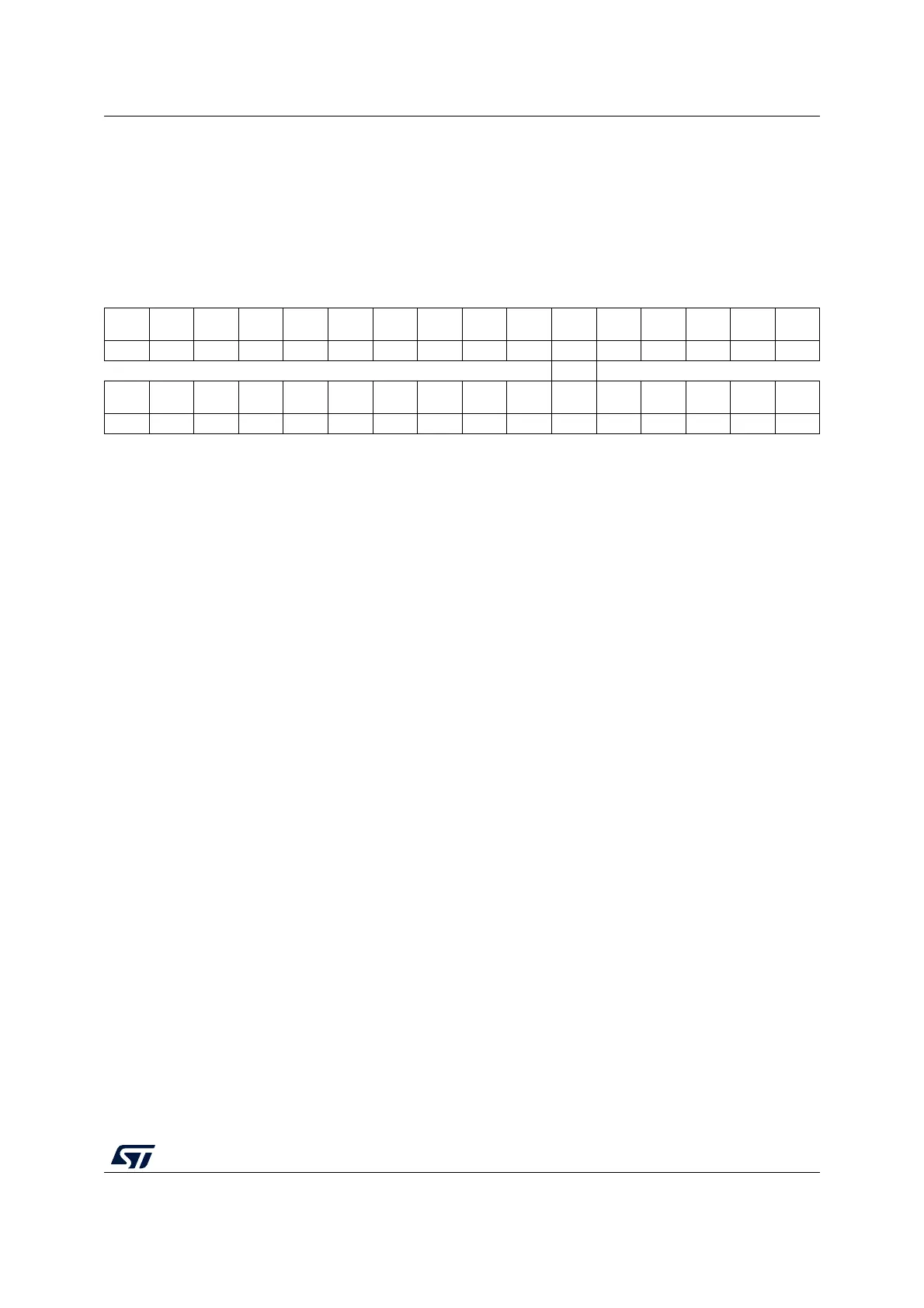